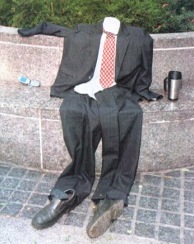Book Review of Barbara Rossing, The Rapture Exposed: The Message of Hope in the Book of Revelation
.
By Andy Holt, who blogs at: The Sometimes Preacher.
Full disclosure by Andy Holt, writer of this review: I’ve never believed in the rapture. It’s nowhere to be found in the Scriptures, and the very idea of all true believers being snatched away doesn’t make any sense. How does that gel with the rest of the Bible? When the going gets tough, God just pulls you out of the world. Huh?
Barbara Rossing’s book “The Rapture Exposed” is a passionate and well-informed refutation of the dispensational, rapture-oriented theology of popular American fundamentalism as seen in the Left Behind fictional adventure series. Dr. Rossing begins her book by artfully laying out the case for the destructive nature of rapture/escapist theology. The unbiblical axiom “It doesn’t matter since it will all burn someday” is the grounds for committing deep sin against the world, and Dr. Rossing rails against the escapist worldview that fosters this thinking.
Questions: What do you think of this alternative vision of the Apocalypse? Will there be a Rapture? Will things be as peaceful and healing as Rossing hopes and writes that they will be? Perhaps more importantly, what role should eschatology play in the formation of public policy?
Perhaps the most useful chapter of the book is the
second, in which Dr. Rossing recounts the development of the Rapture from the
vision of Margaret MacDonald in 1830, to its popularization by John Darby, and
its cementation in the American theological landscape by Cyrus Scofield in the
Scofield Reference Bible. She goes on to simultaneously delinieate and debunk
the foundations of rapture theology through the proof-texting of various
passages in Daniel, Revelation, and other New Testament books.
After the first two chapters, Dr. Rossing presents
her own interpretation of the book of Revelation, the cornerstone of which is
Lamb Power–that is, the victory of the nonviolence of the Lamb Who Stands But
Was Slain over the conquesting and Nike-worshipping violence of the power of
Rome. The book of Revelation, she says, is not about the violence of a vengeful
Lion Messiah coating the world in the blood of the heathens, but rather about
the hope found in the resurrection of the Lamb from the dead. “Lamb theology is
the whole message of Revelation. Evil is defeated not by overwhelming force or
violence but by the Lamb’s suffering love on the cross. The victim becomes the victor.”
(111)
Dr. Rossing goes on to issue a stern warning against
the Christianist Zionism she sees embedded with rapture and dispensational
theology. She warns against the blind support by many fundamentalist Christians
of the secular nation of Israel, especially in regards to the occupation and
settlement of traditionally Palestinian lands. Because dispensationalists see
the re-establishment of the nation of Israel in 1948 as a “super-sign” that the
end is nigh, these fundamentalist Christians will (and have) sought to shape
American foreign policy in a way that fully supports Israel and, in their
minds, speeds the timeline of events that must occur before Jesus returns. But,
Rossing warns, there are real people who are real casualties of the pursuit of
this policy, namely Palestinians, and Palestinian Christians in particular.
“Whenever people invoke biblical prophets to support a program of violence or
injustice,” she writes, “this is a misuse of the Bible. This is extremism.”
(73)
This extremism is manifested through a strange,
violent obsession with and pursuit of Armagaddon, which dispensationalists see
as absolutely central to the prophecies of Revelation. But instead of
Armageddon, Rossing posits that Christians should see the Tree of Life and the healing
it offers as the central image of the Apocalypse.
Rossing’s book does more than just challenge unbiblical, rapture theology, it offers an alternative vision and
interpretation of the book of Revelation. She debunks the myth of the Rapture,
and provides a sound exegesis for those “rapture-passages” that form the
backbone of the escapist theology. She goes on to offer an alternative story,
not one dripping in the blood and vengeful violence of the Left Behind series, but rooted in the healing and hopeful reality
of the Tree of Life which flows from the throne of the Lamb. There is hope for
the nations because the Lamb Who Stands But Was Slain, not the Wrathful Lion,
wields the power of the throne of heaven. Lamb Power, not Tribulation Force,
will have the final say, and all true believers will be right here, with feet
firmly planted on the ground, to see it happen.


